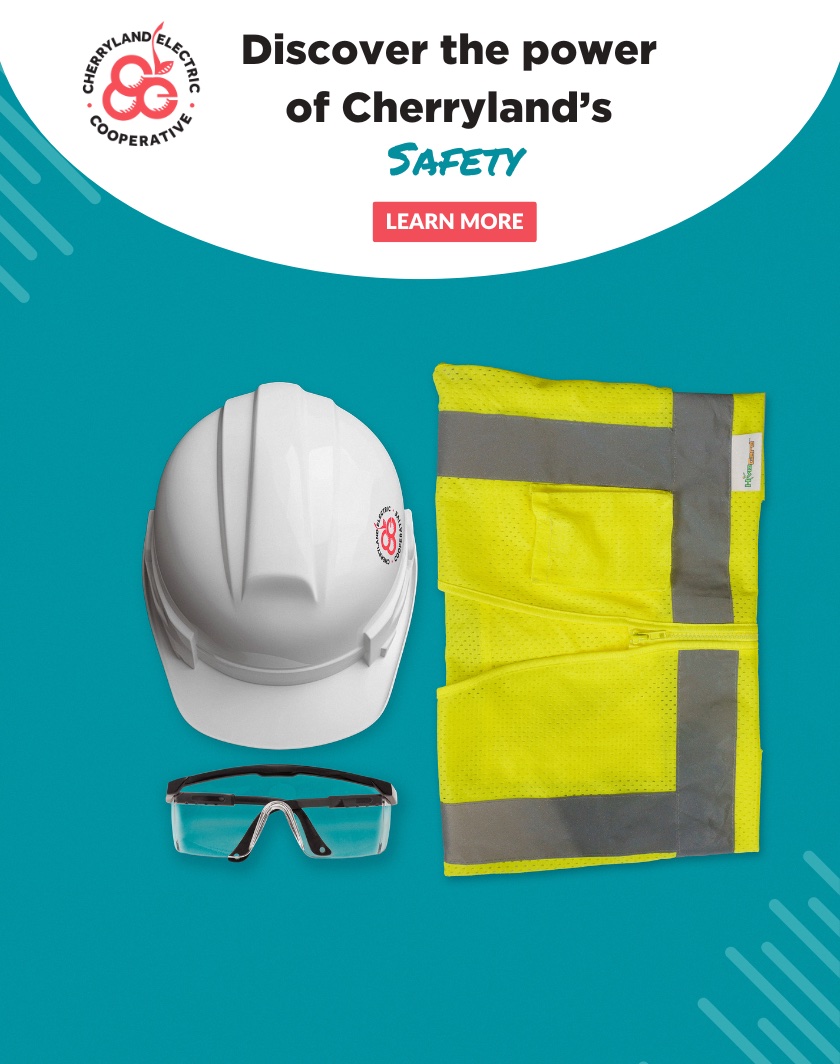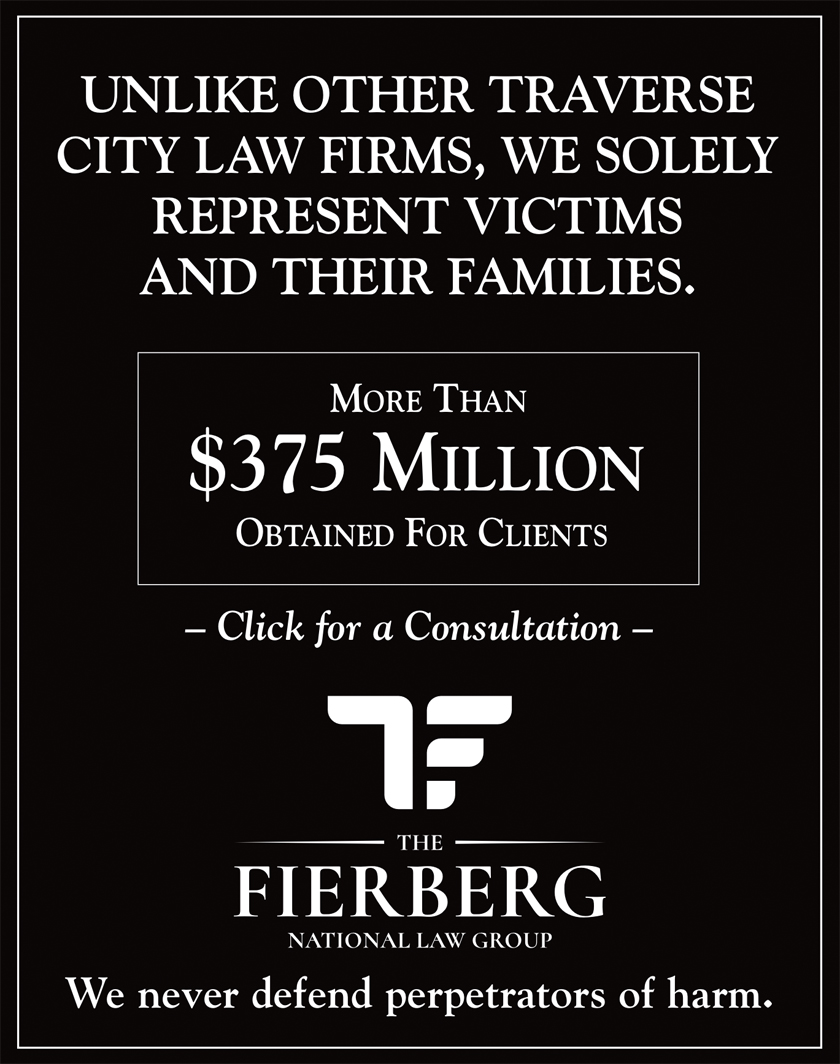
Traverse City’s Big Year
By Beth Milligan | Jan. 8, 2022
From roughly $32 million in infrastructure projects to $7.5 million in grant funding to 1,861 trees planted to 3,118 fire department responses, a diverse range of metrics show 2021 was another busy year for the City of Traverse City. Staff will share some of those figures and year-end updates with city commissioners Monday in an annual recap called "The Performance," which uses key categories to evaluate how individual departments and the city overall are performing. The Ticker previews highlights from the report to show how Traverse City performed in 2021.
Infrastructure
According to City Engineer Tim Lodge, Traverse City normally averages $4.5 million annually in capital project work. But in 2021, that figure soared to $32 million. Work on four major downtown bridges was a significant contributing factor to that total, including a nearly $5 million contract this summer to repair the Park Street, East Eighth Street, and South Cass Street bridges and another nearly $3.8 million project currently underway to replace the West Front Street bridge. Other key infrastructure and maintenance projects included:
> $1.25 million invested into the city’s water treatment plant/collection system and another $622,000 invested into the wastewater treatment plant. The city has also developed a plan outlining $14.75 million in potential improvements over five years to upgrade the city’s water treatment and distribution system.
> City workers and contractors used over 1,506 tons of asphalt for asphalt removal-and-replacement projects on city streets. The city also completed 12.8 center lane miles of crack sealing; used 122.5 yards of concrete to replace curbs, gutters, and sidewalk; used 332.2 tons of road gravel to maintain gravel streets and alleys; removed and replaced 55 storm and sanitary manhole castings; and picked up 7,620 compacted yards of leaves. Crews also plowed over 200 miles of trails, sidewalks, streets, and alleys (not including parking lots).
> The city received $7.5 million in grant funding for infrastructure and maintenance projects. Some of the largest grants included over $2 million in state funding to monitor wastewater for COVID-19, $1.6 million in coronavirus local fiscal recovery funds, and over $1.8 million in two separate grants to install new culverts and pedestrian bridges along Kids Creek.
> 2021 was the culmination of a multi-year, $7.7 million project to repair and replace city sidewalks, resulting in 20.37 miles of improvements. That includes 6.1 miles of road reconstruction projects (where sidewalks were upgraded as a component of road projects), 3.62 miles of sidewalk preservation projects, 7.45 miles of gap and infill sidewalk construction, and 3.2 miles of improved connections as part of Safe Routes to School.
Mobility & Community Enhancements
Backed by a “Complete Streets” policy that emphasizes multi-modal transportation options and state data showing that 11 percent of Grand Traverse County residents don’t own a car, city leaders continued to invest in mobility upgrades in 2021 above and beyond the citywide sidewalk project. Community beautification and improvement projects were also prevalent last year. Included in those projects were:
> A $3 million, 10-year city bond issued to contribute toward completing the Boardman Lake Trail. The first of two final phases of construction was completed on the trail last year. The second phase is under construction now between NMC’s University Center and Medalie Park and is expected to be finished this summer, finishing a decades-long effort by multiple local partners to complete the five-mile loop around the lake.
> The continuance of a “Shared Streets” pilot project with TART Trails and Norte to convert certain neighborhood streets into very low-speed areas, allowing for walking, biking, wheelchair use, and other mobile recreational activities on the street. In 2021, the Shared Streets program was implemented on Sixteenth Street, Beadle Street, Spruce Street, and Huron Street.
> Projects to improve safe crossings were approved in 2021, including a new rapid-flashing beacon that will be installed this spring at the TART Trail crossing on Woodmere Avenue. Interim pedestrian crossing upgrades were also installed at Garfield/Hannah and Parsons/Hastings, with future measures anticipated to include audible cues and/or integration with the railroad and TART Trail crossing.
> Community enhancement projects in 2021 included expanded outdoor dining and platform café options, the installation of public art on Union Street and the Tenth Street trailhead, a butterfly garden planned for Hull Park, design plans commissioned for upgrades to Indian Woods Park, two new snow guns and 60 new sets of rental ski equipment purchased for Hickory Hills, and the finalization of a purchase agreement with Huntington Bank for the future Rotary Square site.
Green Initiatives
In addition to the Kids Creek watershed restoration work mentioned above, the city pursued several green initiatives in 2021. The city is now using 100 percent clean energy for its meters, saving an equivalent to the total energy used by 900 homes in a year. The city also:
> Planted 284 trees in city parks and streetscapes, plus 900-plus bare-root seedlings, 77 potted trees, and 600 herbaceous plugs at the Brown Bridge Quiet Area in partnership with the Grand Traverse Conservation District. The city also partnered with SEEDS on an urban wood program that repurposed trees removed during the Safe Routes to School project and during the road construction project at the Historic Barns.
> Traverse City Light & Power installed an electric vehicle charging station network throughout the city that included 12 dual port Level 2 and 3 DC fast chargers. The city also purchased two low-emission diesel tractors for snow blowing and maintenance. In addition, the city invested in building upgrades including replacing the lighting at the City Opera House and city garage, using more energy-efficient boiler valves at the wastewater treatment plant, and upgrading the impervious surface pavers at the Old Town Garage to maintain the LEED certification for the facility.
Housing
“The city is dedicated to pursuing housing opportunities for all, regardless of income,” according to The Performance. The report lists several steps the city took to work toward that goal in 2021, including eliminating parking minimums, amending zoning rules to increase density, and partnering with the Traverse City Downtown Development Authority to explore converting surface lots into mixed-use developments. The city also:
> Participated in three PILOT agreements for Ruth Park, a new affordable housing project under construction on Wellington Street; Annika Place, a new residential development on South Garfield Avenue; and a HomeStretch development on Carver Street. A PILOT agreement extends a city tax break to developers in exchange for building below-market rental units. Ruth Park will have 58 units for individuals earning 30-80 percent of the area median income and is expected to be complete in late 2023. Annika Place is a 53-unit building that will have nearly two-thirds of rentals set aside for those with 70-80 percent of the area median income. HomeStretch plans to build 10 affordable housing units for individuals with incomes not exceeding 80 percent of the area median income. The project is expected to be complete in 2023.
The city also approved one-year extensions to PILOT agreements with the Traverse City Housing Commission for the new Parkview Senior Apartments complex on Eighth Street, slated to be completed in March, and for a rehabilitation project at Riverview Terrace.
Other Key Highlights
> The Traverse City Fire Department, which celebrated 145 years in 2021, had a total 3,118 responses to calls in 2021. That was a significant uptick from 2020, when the department logged 2,679 emergency responses.
> The city hired 17 new employees, promoted nine employees, and retired 10 employees in 2021. In total, the city currently has 147 full-time employees, in addition to numerous seasonal employees.
> The City Clerk’s office analyzed projects and risk management to cover $162 million in city assets in 2021, in addition to reviewing over $1 billion in insurance coverage required of outside parties. The fiscal year 2021-22 budget for the city was nearly $19.8 million. City departments also vetted and reviewed licenses across more than 40 categories, including issuing over 1,300 permits and licenses that are monitored throughout the year.
> The city was randomly selected by the Department of State to undergo an extensive audit in December of the city’s November election results. The audit included analysis and examination of documents and procedures used by the City Clerk’s team leading up to the election, and the procedures and documentation from a randomly-selected voting precinct. The audit also included a hand count of the vote totals in a randomly-selected race. The audit confirmed the city’s election results were 100 percent accurate.
> What’s ahead for 2022? The 2021 report notes several projects coming up this year, including the city commission’s adoption of the Lower Boardman Unified Plan, an overhaul of the city website, a rewrite of the city’s master plan, a recreational marijuana ordinance coming for city approval, and Hickory Hills upgrades including expanded snowmaking to the Nordic trails, Swede/Waterfall and Magna Carta, disc golf expansion, erosion stabilization, and a mountain bike trail study.







